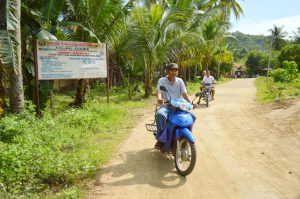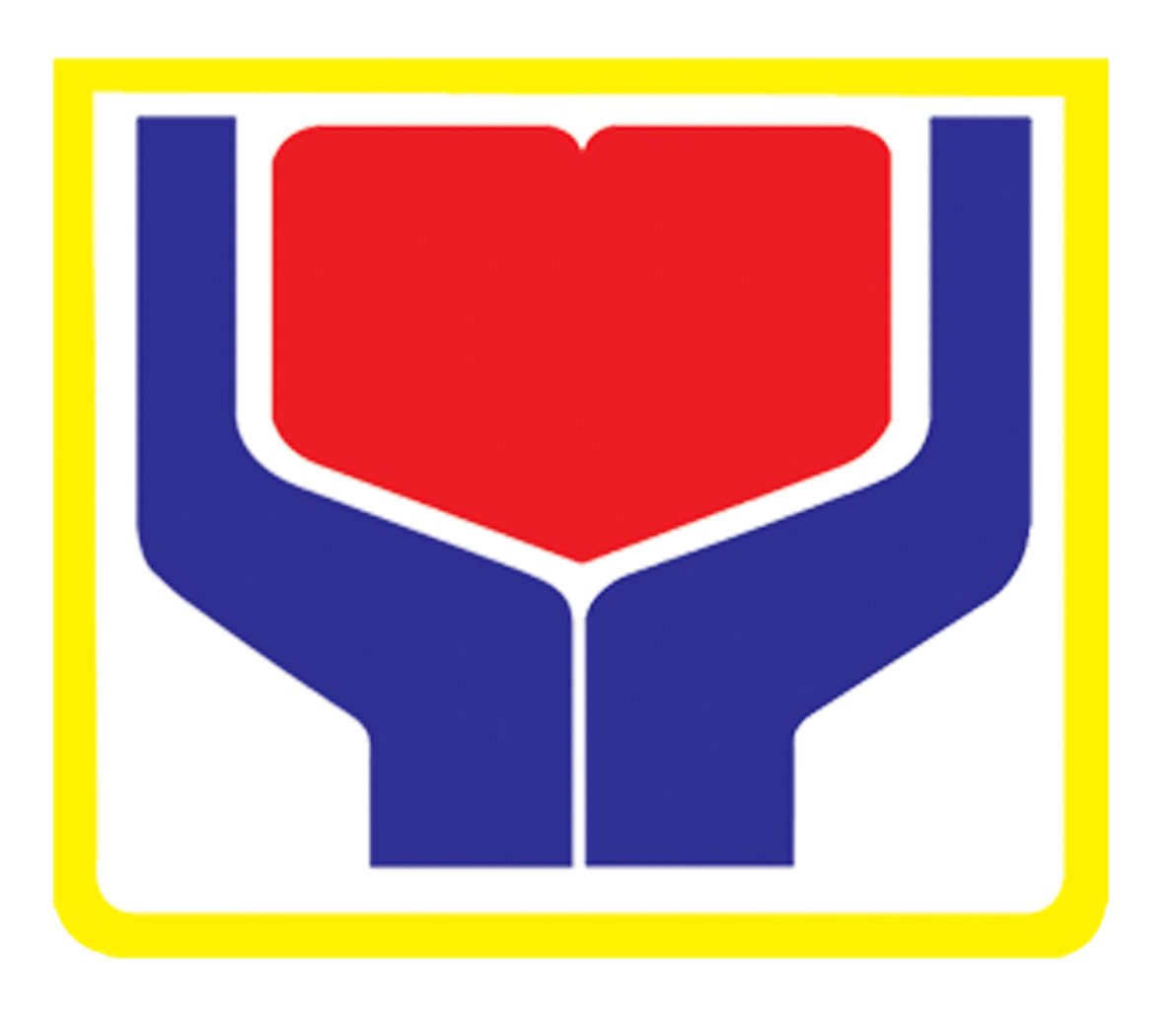
Of the many projects they have worked on as on-call construction workers, Nestor Macarilay and Pancho Ona felt that they were building lies instead of infrastructure.
At work, whenever they see and hear suspicious deals around, the two felt disappointed for working for people who manipulated the project budget and kept money for themselves. For them, these people were simply satisfying their personal interests even to the point of sacrificing the quality of the projects.
“Ganoon na yata talaga ang kalakaran sa construction,” said Pancho, 46.
Despite this, the two had no other choice but continue working in this kind of business as this is one of their main sources of income for their families.
“Bukod sa pagsasaka ay ito lang din ang alam naming trabaho. Kailangan naming kumita para matustusan ang pangangailangan ng aming pamilya,” added Nestor, 43.
However, last 2014, their judgment changed when they worked for a farm-to-market road project in their village of Villa Padua in Gumaca, Quezon Province. The two realized that a corruption-free project is possible for people with greater interest – the interest to improve their community.
“Posible pala na magkaroon ng transparency sa construction kapag mamamayan mismo ang nagplano, nagpatakbo, at nagsagawa ng proyekto. At ‘yun ang nangyari sa proyekto namin,” shared Pancho, who is also the Brgy. Capt. of the village.
The farm-to-market road is a project of the Villa Padua residents through the Kapit Bisig Laban sa Kahirapan-Comprehensive and Integrated Delivery of Social Services (Kalahi-CIDSS) program of the Department of Social Welfare and Development (DSWD). The Kalahi-CIDSS aims to empower residents to engage in the local development process of their community for a transparent implementation of projects.
Nestor, who became the head of the project implementation, said that this process was greatly appreciated by the residents.
“Sinuportahan ng mga mamamayan ang Kalahi dahil naramdaman nila na para talaga sa kanila ang proyekto. Walang labis, walang kulang,” said Nestor.
Kalahi-CIDSS as a community-driven program
As a community-driven program, the residents themselves are given the power to prioritize the project that will address the needs of their community.
They decided to concretize a critical slope of their road to have easier access to their barangay. They are provided with PhP587,156 grant for the project.
“Tuwing umuulan, sobrang maputik ang kalsada namin. Hindi nakakadaan ang mga motor lalo na sa parteng paliko ng kalsada. Kaya nilalakad lang namin ito, lalo na ang mga bata na papasok sa school,” shared Nestor.
To ensure that most residents are involved in the project implementation, they were organized as community volunteers who were in charge from the planning, construction and the preparation of the maintenance plan for the project.
According to Nestor, they were trained on each step of the implementation such as proposal development, financial planning and community procurement that have guided them in properly managing their project.
Further, other residents were hired as laborers during the construction of the road and were paid with PhP250 to PhP350 a day. Brgy. Capt. Pancho shared that different residents were employed per week to give everyone a chance to earn even for a short period of time.
“Meron ditong kumikita lang ng 50 pesos sa pamamasura na kung bibigyan mo ng pagkakataon ay kaya namang magtrabaho at kumita ng mas malaki para sa pamilya niya. Kung baga, hinikayat namin ‘yung mga talagang walang-wala para mabigyan sila ng pansamantalang pagkakakitaan,” shared Brgy. Capt. Pancho.
He added that women were also welcomed to work in the construction to show that gender does not define what a person can do for the community.
Nelia Talabia, 61, is one of the women volunteers who worked for the road. She had offered a space in her house to store the construction materials for the project.
“Alam ko naman kasing may patutunguhang maganda ang pagtulong ko. Isa rin naman ako sa lubos na makikinabang dahil nasa tapat lang ng bahay namin ang proyekto,” shared Nelia.
Last September 2015, the Villa Padua residents have successfully completed the 448 square meter road project. Now, they have a better road in their barangay.
Greater opportunities
According to Nestor, the road gave greater opportunities for the residents, especially for the farmers.
As the president of the farmers’ association in their barangay, Nestor is glad to see that they no longer need to carry their sacks of harvest and walk for an hour just to bring their goods to the market. Tricycles can now pass through their barangay and directly pick-up the products.
With the tricycles, transportation time is cut short. The goods are now delivered fresh to the market early in the morning. This doubled the monthly earnings of the farmers.
“Nakatulong ang proyekto para masiguro ang magandang kabuhayan naming mga magsasaka at maggugulay dito sa Villa Padua,” Nestor said with a smile.
Nestor added that children now have a more comfortable travel to school. Whenever it rains, they can already wear their shoes and uniforms starting from home without the fear of getting dirty and muddy along the way.
“Nung ako’y estudyante pa, naka-short lang kami kapag papasok kasi putikan talaga kami. Ngayon, sosyal na ang mga bata kasi kaya nang dumaan ng tricycle sa amin at pwede na silang sumakay,” Nestor shared in laughter.
Taking care of their efforts
To ensure the sustainability of the road, the barangay council created an ordinance wherein 10 to four wheeler trucks are not allowed to pass through the road. Hence, they developed a by-pass road for these types of vehicle.
Also, the council allotted PhP20,000 a year for the maintenance of the project.
“Kapag hindi mauubos ang budget kada taon, maiipon ito na pwedeng gamitin para dugtungan pa at pahabain ang kalsada,” added Brgy. Capt. Pancho.
On the other hand, the farmers’ association led by Nestor was in charge of the overall operations and maintenance of the road. Every day, a member is on duty to monitor the vehicles passing through the road. They also conduct clean-up drives together with the beneficiaries of the DSWD’s Pantawid Pamilyang Pilipino Program on a monthly basis.
“Maganda ang naging impact ng Kalahi sa aming mamamayan. Naging malaking tulong sa amin ang kalsada at higit sa lahat, natuto kaming magkaisa para sa ikakaayos ng aming pamayanan,” Nestor said proudly.
With all these, Pancho and Nestor realized that a clear and collective goal can oppose personal interests to arise. For them, it is much satisfying to work on a project not built with lies but with perseverance to improve the lives of the people. #
